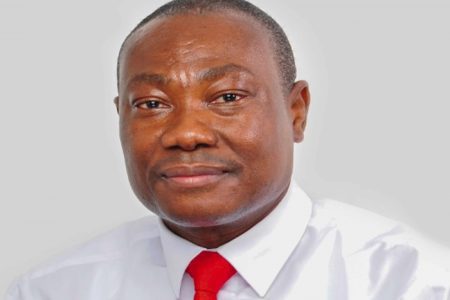Ghana’s gold export revenue is projected to reach $10 billion by the end of 2024, with the first half of the year already seeing revenues of $5 billion.
This significant increase is attributed to a rise in local gold production from both small and large-scale operations, as well as a surge in global gold prices, particularly in the second quarter of the year.
In the second quarter, gold prices averaged a record $2,338 per ounce, marking an 18% increase year-on-year and a 13% increase quarter-on-quarter.
July saw an average price of $2,396 per ounce, peaking at $2,482 per ounce on July 17, 2024.
Martin Ayisi, CEO of the Minerals Commission, reported that Ghana’s gold export reached a record high in the first half of 2024.
Total mineral exports for this period amounted to $9.2 billion, with gold alone contributing 54%, or $5 billion.
Mr Ayisi is confident that if gold prices remain stable, the full-year revenue from gold exports could reach $10 billion.
Small-scale mining contributed significantly to these figures, generating $1.7 billion in the first half of the year, accounting for about 36% of the total gold export by mid-year.
Ayisi projects that small-scale mining exports could exceed $3 billion by the end of 2024, driven by record-high gold prices.
Ayisi emphasized that the revenue from gold exports underscores the mining sector’s role as the backbone of Ghana’s economy. However, he noted that the true economic benefits lie in value addition.
The government is actively pursuing value addition for minerals like lithium, bauxite, and manganese, and has plans for local gold refining.
He expressed satisfaction with the government’s strong policy on value addition, particularly regarding manganese.
The Ghana Manganese Company Limited is investing $450 million to build a refinery that will locally process manganese ore, increasing its grade from 27% to 40% and creating an additional 350 jobs.
The CEO highlighted new measures to improve local content and participation in the mining sector, ensuring that over $2 billion spent annually by mining companies on local supplies and services benefit Ghanaians.
He also praised the efforts to list mining companies on the Ghana Stock Exchange to raise capital for mining projects.
The Minerals Income Investment Fund was commended for taking equity stakes in mines, enhancing state and local participation in the mining sector.
Mr Ayisi also called for better environmental management of small-scale mining operations, which support approximately three million livelihoods across 12 out of 16 regions.
He underscored the need for sustainable practices in small-scale mining to ensure its long-term viability and benefit to the economy.
- We are all Natasha, and we don’t kiss just anybody - 31 March 2025
- MTN FA Cup: Kotoko to face Berekum Chelsea in semis - 31 March 2025
- Prof Opoku-Agyemang seeks medical treatment abroad - 30 March 2025

